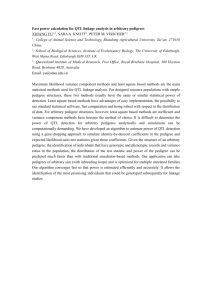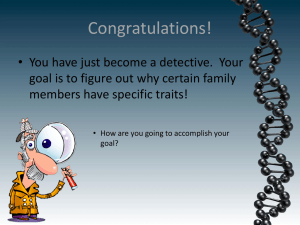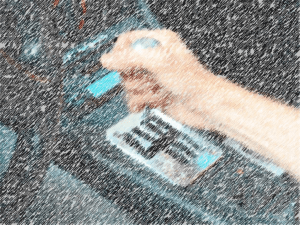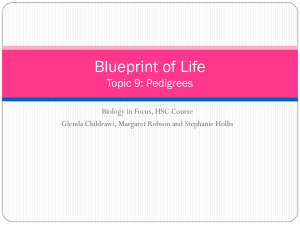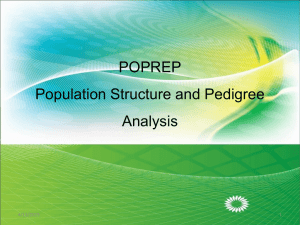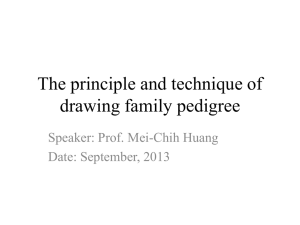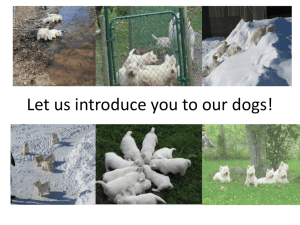sgi_genetics_8 - POLYTECH High School
advertisement
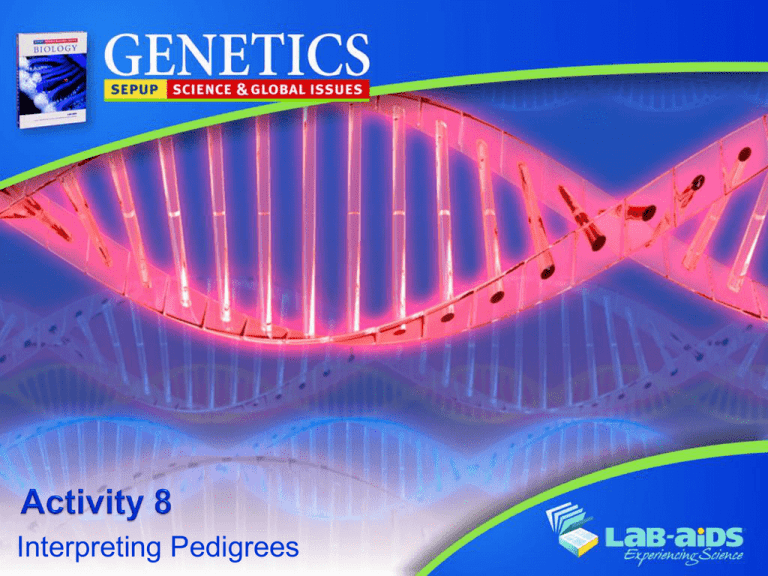
Interpreting Pedigrees LIMITED LICENSE TO MODIFY. These PowerPoint® slides may be modified only by teachers currently teaching the Science and Global Issues SEPUP course to customize the unit to match their students’ learning levels or to insert additional teaching aides. Modified slides may be used only by the modifying teacher in his or her classroom, or shared with other teachers of Science and Global Issues within the teacher’s school district, with these same restrictions. Modified slides may not be taken out of the classroom or distributed to any non-student person or organization. Except for use with students in the classroom, modified slides may not be published in printed or electronic form, including posting on the Internet. Only text may be modified: photographs and illustrations on the slides may not be modified in any way except to change their size. DISCLAIMER OF WARRANTY. THE REGENTS OF THE UNIVERSITY OF CALIFORNIA (“University”) MAKE NO REPRESENTATIONS OR WARRANTIES, EXPRESS OR IMPLIED, INCLUDING BUT NOT LIMITED TO THE IMPLIED WARRANTIES OF MERCHANTABILITY AND FITNESS FOR A PARTICULAR PURPOSE. University will not be liable for any costs, damages, fees or other liability, nor for any direct, indirect, special, incidental or consequential damages (including lost profits) with respect to any claims by the purchaser or user of Science and Global Issues or any third party on account of or arising from the use or modifications to the slides. Client acknowledges and accepts that University services are provided on an as-is basis. Activity 8: Interpreting Pedigrees Get Started Read the introduction. A pedigree shows generations and relationships among biological parents and offspring. It also tracks which of those individuals have a specific trait. Activity 8: Interpreting Pedigrees Challenge What information can geneticists obtain by analyzing a pedigree? Activity 8: Interpreting Pedigrees Analyzing Pedigrees Activity 8: Interpreting Pedigrees Pedigree A: Huntington’s Disease Activity 8: Interpreting Pedigrees Pedigree B: PKU Activity 8: Interpreting Pedigrees Pedigree C: Hemophilia Activity 8: Interpreting Pedigrees Analysis 2 Examine the pedigree below for grain plants with a trait for a high amount of protein. What can you determine about the trait based on the pedigree? Activity 8: Interpreting Pedigrees Follow Up Analysis 3 How do farmers and agricultural geneticists use the information provided by a pedigree to breed desirable traits in an agricultural crop? Activity 8: Interpreting Pedigrees Analysis 4 On the next slide is a pedigree for cattle that have been genetically modified to produce a human protein that helps prevent blood clots in humans. Using the information in the pedigree, answer the following questions: a. What type of inheritance mechanism—dominant, recessive, or sex-lined recessive—is shown in the pedigree? Support your answer with evidence. b. From the information in the pedigree from generation 3, can you determine if the gene is still present in the cow population? Explain why or why not? Activity 8: Interpreting Pedigrees Analysis 4, continued Activity 8: Interpreting Pedigrees Revisit the Challenge What information can geneticists obtain by analyzing a pedigree? Activity 8: Interpreting Pedigrees Key Vocabulary allele carrier Dominant pedigree recessive sex-linked sex-linked recessive Activity 8: Interpreting Pedigrees
